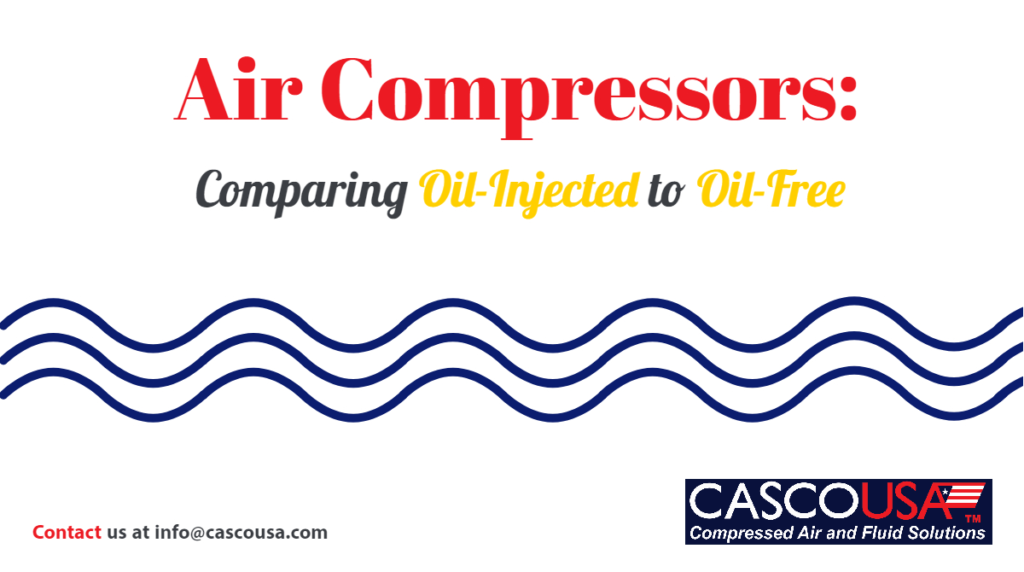Comparing Oil-Injected to Oil-Free Compressors

If you’re in the market for a new air compressor, you have probably seen some models labeled “oil-free.” The specs seem to be the same on these models as on the oil injected models. You may be wondering, what really is the difference between the two? Read on, to understand that question and to understand what model is best for your process.
What does “oil-free” mean?
Contrary to the name, oil-free compressors aren’t actually completely free from oil. Instead, they simply don’t use oil in the compression chamber. This setup limits the amount of oil that could contaminant the compressed air. Unlike traditional designs which inject oil into the compressor element, oil-free models have two-stages to reach the desired compression level. The air cools in an inter-cooler between the chambers, much as oil draws heat from the process in other compressors. With this design, air can be compressed to the same pressure levels as oil-injected models.
Why use oil-free compressors?
Depending on the sensitivity of your process, the oil-free feature may be very important. For instance, both the food and beverage and the pharmaceutical industries could have catastrophic affects if oil were to contaminant the final product. Though oil-free air can be generated through the use of filters with oil-flooded models, many opt instead for an oil-free setup.
Oil-free compressors also generally have lower maintenance costs. Though other areas of the compressor, such as the gearbox, still contain oil and need regular service, the main compression chambers do not. Without oil, there are fewer moving parts and less potential areas for problems.
What are potential downsides?
However, oil-free compressors are not always the best choice for a system. The lifespan of oil-free compressors is much shorter than on oil-injected models, especially in the case of heavy use. Oil-free compressors have less durability and can only tolerate so much use per day. If you plan to run your compressor continuously, an oil-free compressor is probably not best. Also, the lack of lubrication in the compressor chamber results in a very noisy machine, which could cause installation problems.
Choosing a compressor is never an easy task. Buyers must consider plenty of issues and concerns. However, having a basic understanding about different compressor models allows you to specify your search. By knowing what compressor types work with what applications, you will be ready to discuss details and make a more informed decision.
When you are ready to talk details, a CASCO USA representative will be available.
Comments are closed.
